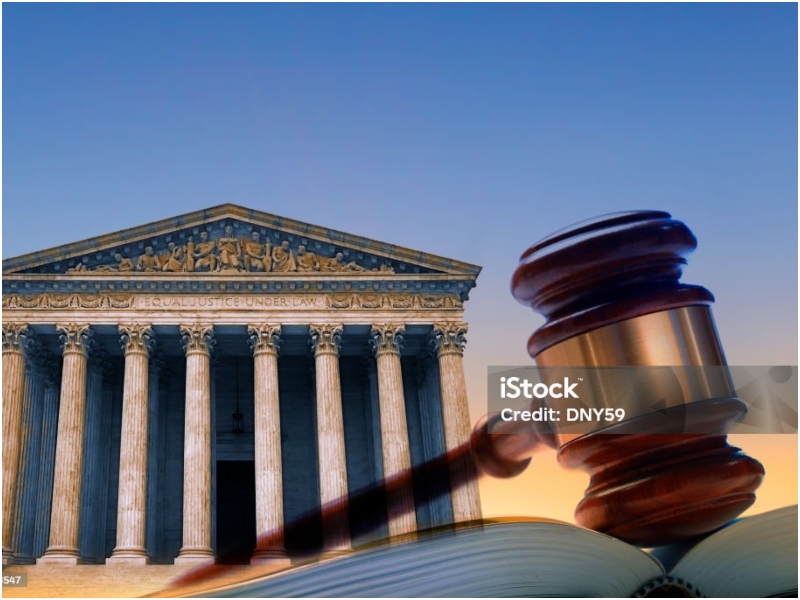The U.S. Supreme Court is often hailed as the pinnacle of justice, but even its esteemed justices are not immune to errors.
While many of their decisions are lauded for promoting equality and protecting individual rights, others have left a stain on the annals of legal history.
From upholding racial segregation to restricting civil rights, here are nine of the most egregious Supreme Court rulings that have shaped American jurisprudence.
1. Dred Scott v. Sanford (1857)
Dred Scott v. Sanford stands as a dark testament to the court’s fallibility. This landmark decision denied African Americans, whether free or enslaved, the status of citizenship and helped perpetuate the institution of slavery. It took the passage of the 13th and 14th Amendments to rectify the injustices perpetuated by this ruling.
2. The Civil Rights Cases of 1883
In a blow to civil rights, the Supreme Court struck down the Civil Rights Act of 1875, which aimed to eliminate racial discrimination in public accommodations. The decision paved the way for the era of Jim Crow segregation and was not overturned until the landmark Heart of Atlanta Motel v. U.S. case.
3. Plessy v. Ferguson (1896)
Under the guise of “separate but equal,” Plessy v. Ferguson sanctioned racial segregation, perpetuating racial inequality and subjugation. It took nearly six decades and the courageous ruling of Brown v. Board of Education to overturn this egregious decision.
4. Lochner v. New York (1905)
Lochner v. New York epitomized judicial activism by striking down labor regulations intended to protect workers’ rights. Although eventually overruled, its legacy continues to spark debates over the balance between economic liberty and social welfare.
5. Buck v. Bell (1927)
In a chilling decision, the Supreme Court upheld the forced sterilization of individuals deemed “unfit” by society. While never formally overturned, its authority has been significantly diminished in subsequent rulings.
6. Korematsu v. United States (1944)
Korematsu v. United States upheld the internment of Japanese Americans during World War II, disregarding fundamental civil liberties. Despite never being formally overturned, its legitimacy has been widely questioned in subsequent legal analyses.
7. Bowers v. Hardwick (1986)
Bowers v. Hardwick upheld discriminatory laws criminalizing homosexual conduct, undermining individual privacy rights. It took the courageous ruling of Lawrence v. Texas to overturn this injustice and affirm the rights of LGBTQ+ individuals.
8. Bush v. Gore (2000)
The controversial ruling in Bush v. Gore shaped the outcome of the 2000 presidential election, raising concerns about judicial overreach and political bias. While never officially overturned, its Equal Protection holding has been largely disregarded in subsequent legal analyses.
9. Citizens United v. FEC (2010)
Citizens United v. FEC unleashed a flood of corporate money into politics, amplifying the influence of wealthy special interests. Its repercussions continue to reverberate through American democracy, fueling debates over campaign finance reform and the role of money in politics.
While the Supreme Court has delivered many landmark decisions in the pursuit of justice, these rulings serve as a stark reminder of the fallibility of the judiciary and the ongoing struggle for equality and fairness in American society.
The ideas and views presented here are those of Casey C. Sullivan, Esq. | Updated by Vaidehi Mehta, Esq. | Last updated on January 02, 2024 on Findlaw.com.

